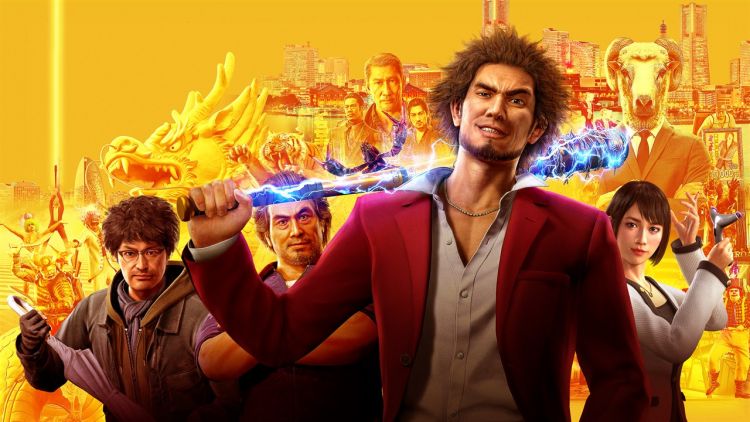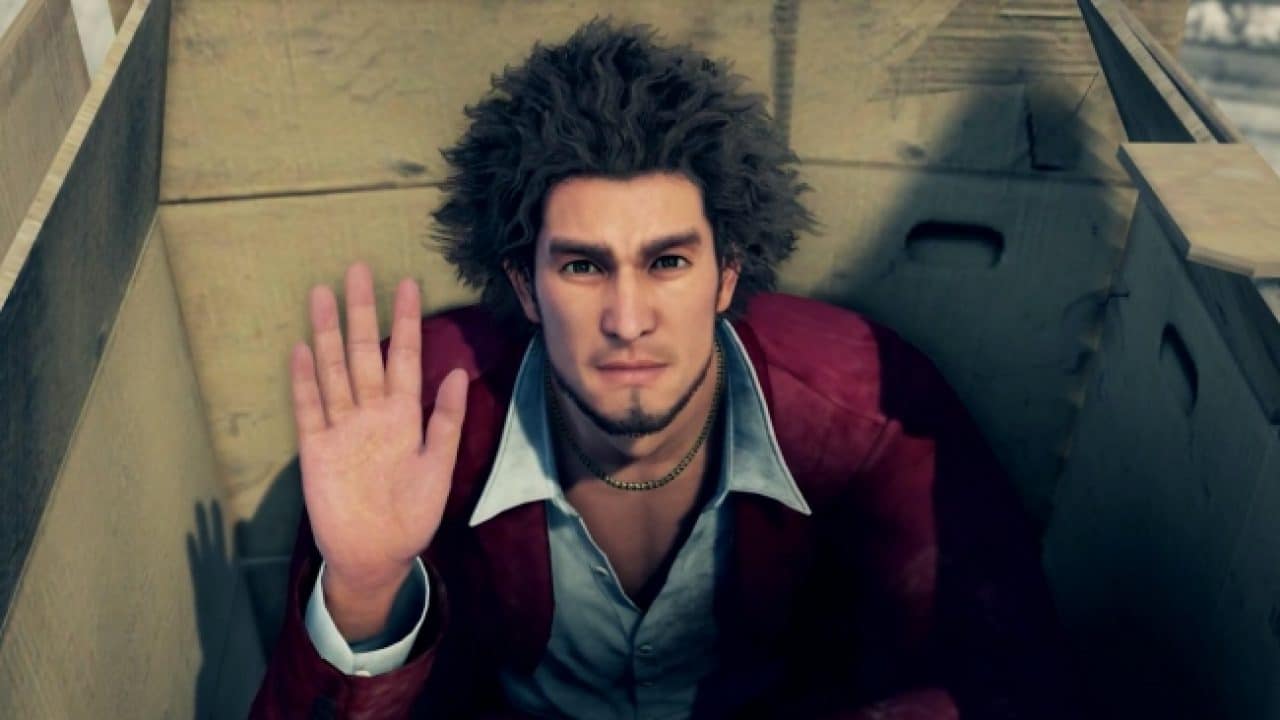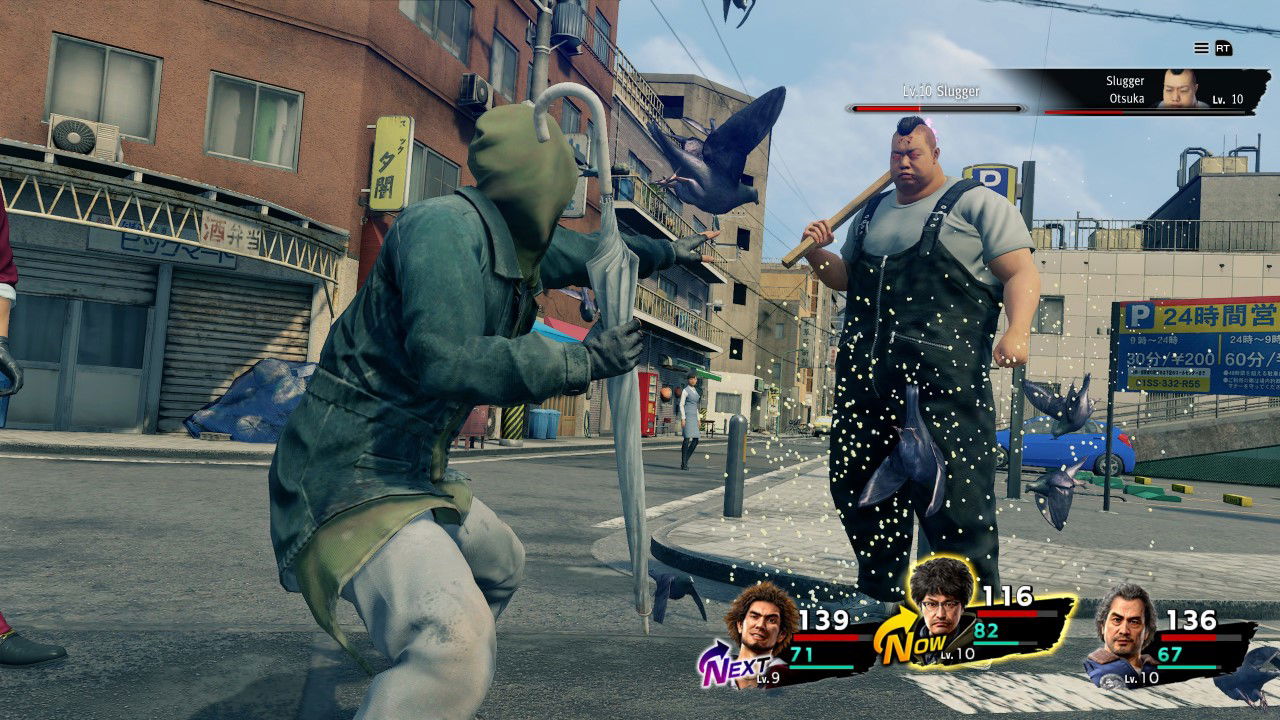Sega’s Yakuza franchise during this generation has been more like a phoenix than a dragon. The Yakuza games have never been more popular and beloved. Yakuza: Like a Dragon is an incredible entry point for new fans and a shining example of what makes Yakuza: Like a Dragon so special.
Game Name: Yakuza: Like a Dragon
Platform(s): Xbox One (Reviewed), PlayStation 4, PlayStation 5, Xbox Series X
Developer(s): Ryu Ga Gatoku Studio
Publisher(s): SEGA
Release Date: November 10th, 2020
Price: $60 (Amazon)
What defines a JRPG is well understood by those familiar with the genre, even if they wouldn’t call it that by name. They’re all about teenagers or young adults fighting gods and monsters in melodramatic and grand adventures in fantastical worlds. Or at least that’s the stereotype. Yakuza: Like a Dragon embraces the true strengths of the genre while embracing the exciting drama and whacky antics the series will always be known for-just in new ways.
Ichiban Kasuga is the nicest person I have ever met.
The game tells the story of Ichiban Kasuga, an ex-yakuza betrayed by his own and a huge fan of Dragon Quest. Ichiban is kind, not the brightest, but loyal to a fault. These tropes and characteristics many have seen before, but they both make Ichiban stand out as a protagonist in the series and a person in Like a Dragon’s depressingly realistic and uncaring world. The game’s core theme is loyalty, which isn’t new to the series but takes on a whole new meaning when you’re seeking answers about your betrayal and fighting alongside your friends in every battle.
You and your allies have all been cast aside by society. You’ve been betrayed, lied to, deceived, hurt, and left to either give up or seek answers. Yakuza: Like a Dragon isn’t the most educated critique of society. While it doesn’t have the deepest or most nuanced messages to say, it does have a lot to show. You and your comrades include a homeless man, an ex-cop, and a hostess, to name a few. The people who help you along the way are also sex workers and other homeless. The people you fight against are career criminals that are deep into politics. The organizations they work for and the society they serve don’t care about those afflicted by real problems. Rather, those with real problems are the issue. Take, for example, the activist group Bleach Japan from early on in the game. They seek to remove prostitution and sex work from Yokohama, but they don’t really care about women, their autonomy, or the conditions that placed them where they are in life. The story isn’t exactly Good Vs. Evil, but rather the disenfranchised versus the corrupt.
Become a Hero and the Dragon of Yokohama – A city that needs saving.
The city of Yokohama is a wonderful new setting for the series. It feels so much more organized than previous locations in past entries. It’s massive for series standards, packed with fun things to do, and is filled with memorable and useful locations. In past Yakuza games, I was used to Kamurocho since it was the main city of every mainline game, but Like a Dragon’s mechanics serve to make navigating and interacting with the town more intimate. Past titles’ major incentive to visit every store and eat every food was completion points. In Yakuza 0, they gave each protagonist new abilities, but the incentive to explore the town is greater than ever in Like a Dragon. While various shops had plenty of unique weapons and gear to acquire, I felt little motivation to use equipment in past games as long as I was good at the combat and understood my move-lists.
Certain combinations of food at specific restaurants will also inspire conversation among your pals, allowing you to learn things about them outside of the main story and increase your bond. For example, Saeko loves tomato soup at a certain fast-food place, but it’s her favorite because she associates it with hanging out with her friends in her college days. These fun little conversations can also be prompted when running around town and seeing an object of interest like a statue or movie poster. You’ll constantly be stomping the pavement when you’re not stomping enemies, so all of these little social exchanges add so much to your routine.
The city is also gorgeous, with flashing neon lights and water reflections being its best aesthetic features. Where the game lacks visually and in terms of presentation are in regular NPC models that fall behind the standard set by your party. It’s not a new issue for the series, but it’s still an issue nonetheless.
It has to be said; the English dub is pretty damned good. I know some purists would rather play Yukaza without the dub, but I implore you to give it a chance.
Like every Yakuza game, there are also various mini-games for you to enjoy at your leisure. There’s a batting cage, golf, gambling, and much more. The big attractions this time around are movies, cart racing, and business management. You can watch various films either by yourself or with friends to get closer and boost Ichiban’s personality stats. The cart racing minigame has its own storyline that will pit you against wacky characters in Mario Kart-esque races around town. You can also run the apt named Ichiban Confections to gain money and appease shareholders. There are tons to do outside of battle, and I firmly believe these side activities are some of the best the series has to offer, both in terms of fun and how they connect to the core gameplay.
It’s also worth mentioning that there are fully playable versions of SEGA’s legendary games within Yakuza: Like a Dragon. Titles such as Outrun, Fantasy Zone, Virtua Fighter 2, and Virtua Fighter 5: Showdown. All of which are located in locations based on real Sega arcades in Japan. Adding playable SEGA games is a tradition of the Yakuza series, which has been continued here.
Engage in Dynamic Turn-Based Combat, like a Hero.
The Yakuza series is stronger than ever before and is taking a bold new approach. The series of open-world 3D brawlers has replaced its beat-em-up combat with fast-paced turn-based battles that utilize various literal jobs and the environment around you. I found the game’s combat a bit more nuanced than I think most expected. The job system keeps battles fresh and encourages you to make every character unique, even when their roles can overlap. The environments you battle in are very much alive, especially on the streets. Your characters will automatically pick up objects if they’re in their path to beating down an enemy, letting them do extra damage. Your characters will run around corners and barrel over chairs and ledges in their way. If you’re near a road, your party and opponents can be hit by cars, doing massive damage. These real-world turn-based battles are full of energy and can also be really funny, like when I’m taking time to think of my next move, but some guy trying to get to work honks at my dumb larping friends and me.
Yakuza: Like a Dragon is a gripping crime drama filled with lovable characters and high octane fights. It takes the series in a daring and satisfying new direction that risks giving longtime fans and newcomers something different yet familiar in refreshing ways. While not without faults, it will have you gripping the edge of your set and grinning ear to ear with its cathartic storytelling and moment-to-moment gameplay.
Review Disclosure Statement: Our copy of Yakuza: Like a Dragon was provided to us by SEGA for review purposes. For more information on how we review video games and other media/technology, please review our Review Guideline/Scoring Policy.
Affiliate Link Disclosure: One or more of the links above contain affiliate links, which means at no additional cost to you, we may receive a commission should you click through and purchase the item.
Summary
The latest entry in the over the top crime drama saga breaks new ground for new fans and series veterans.
Pros
- A gripping, dramatic crime story
- Lovable Characters
- Fun New Gameplay Systems
Cons
- Poor NPC models
- Weak Sub-stories
-
Yakuza: Like a Dragon Review




